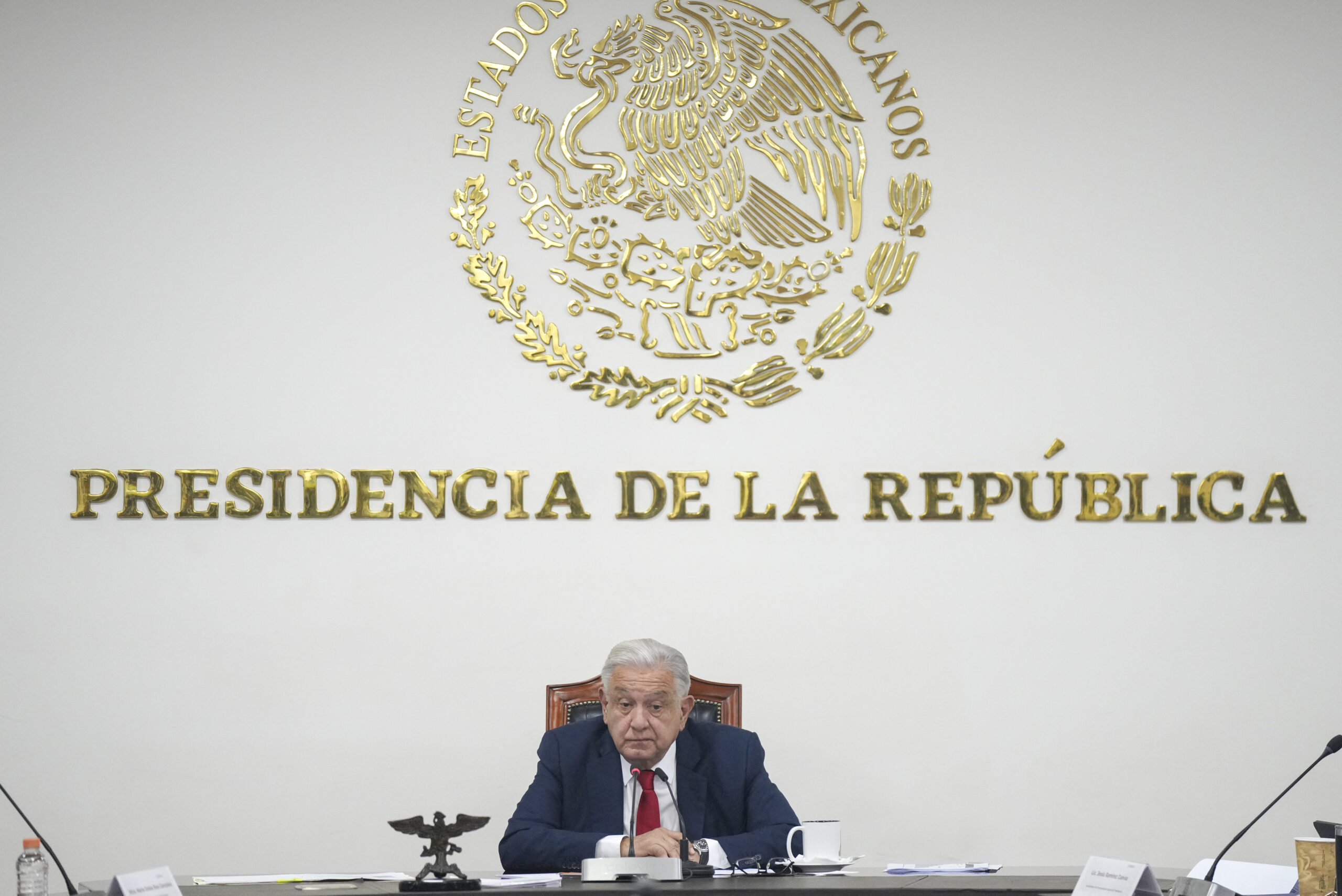
By EFE
24 Aug 2024, 1:39 PM EDT
The reform to eliminate seven autonomous bodies and regulators in Mexico was approved on Friday with the support of the ruling party majority in the Constitutional Affairs Committee of the Chamber of Deputies.
The initiative, led by President Andrés Manuel López Obrador, received 22 votes in favor from the ruling National Regeneration Movement (Morena) and its allies, the Labor Party (PT) and the Green Ecologist Party (PVEM), and 17 against from the opposition.
This is how the disappearance of the National Institute for Transparency, Access to Information and Protection of Personal Data (Inai), the National Council for the Evaluation of Social Development Policy (Coneval), and the National Commission for the Continuous Improvement of Education (Mejoredu) is taking shape.
In addition to the Energy Regulatory Commission (CRE), the National Hydrocarbons Commission (CNH), the Federal Telecommunications Institute (IFT) and the Federal Economic Competition Commission (Cofece).
The proposal states that its functions will be covered by other areas of public administration such as the Ministry of Economy, Public Education (SEP), Energy (Sener), Civil Service, Infrastructure, Communications and Transportation (SICT), among others such as the National Institute of Statistics and Geography (Inegi).
In addition, it aims to trigger budgetary savings, which will be redirected to the newly created Pension Fund for Welfare, which is intended to equalize the pensions of Mexicans with the last salary they received, with a cap of almost 17,000 Mexican pesos (almost $890 dollars).
The opposition, made up of the Institutional Revolutionary Party (PRI), National Action Party (PAN), the Democratic Revolution Party (PRD) and the Citizen Movement (MC), denied that they want to make a budget adjustment to meet the goal of “austerity” and accused it of being part of López Obrador’s revenge against organizations such as the Inai.
PAN deputy Héctor Téllez recalled that the Inai helped with investigations that concluded in major corruption cases both during the six-year term of López Obrador and during that of former presidents Vicente Fox, Felipe Calderón and Enrique Peña Nieto.
Furthermore, it was noted that the elimination of bodies such as Cofece could distort the preponderance of large economic players in national markets, as well as the elimination of institutions such as the IFT that contribute to improving communication prices.
Deputies, such as the PRI member Rubén Moreira, warned that beyond a matter of austerity, what is sought is to generate a “supreme conservative power.”
Meanwhile, the deputy of President López Obrador’s party, the Morena member Irma Juan Carlos, argued that this reform puts at risk the obligations that Mexico has committed to in the international context, such as the Mexico, United States and Canada Treaty (T-MEC).
“What we are seeking is to consolidate a truly efficient government, a government that does not depend on unnecessary autonomous bodies that only duplicate functions and squander the people’s resources,” he said.
This positioning comes after the ambassadors of the United States and Canada warned of investors’ concerns about reforms to the Judiciary and others such as the elimination of autonomous regulatory bodies.
The statements by the American ambassadors come as rating agencies such as Fitch and entities such as CitiBanamex and Morgan Stanley have also warned about the risk of approving the reforms proposed by President Andrés Manuel López Obrador, particularly those of the Judiciary.
Continue reading:
- Mexico, among the 3 least safe countries in the world to travel to in 2024
- Republicans call Biden’s immigration regularization plan “anti-Mexican”
- Ken Salazar supports Mexico on some points for reform of the Judicial Branch
